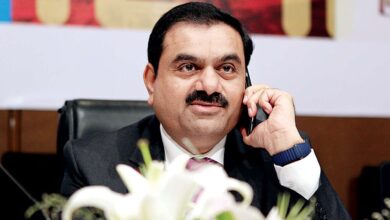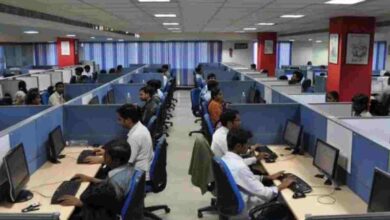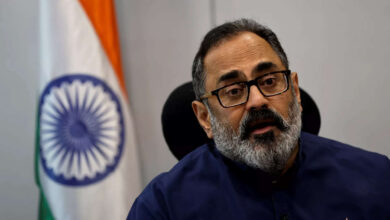
‘It’s the end’: Former BharatPe cofounder Ashneer Grover critiques PharmEasy’s plan to raise $300 million
Former BharatPe cofounder Ashneer Grover strongly criticised PharmEasy’s intention to raise approximately $300 million in funding. Grover, also known for his role as a judge on Shark Tank, stated that this move could potentially lead to adverse consequences for the stakeholders involved. He specifically highlighted concerns about a “down round” and an “anti-dilutive clause,” which he believed would have detrimental effects on the founders.
A “down round” refers to a financing round in which a company’s valuation decreases compared to its previous funding round. This can result in existing investors facing a reduction in the value of their shares. Meanwhile, an “anti-dilutive clause” is a provision in a contract that protects certain shareholders from dilution by granting them additional shares at a lower price to maintain their ownership percentage.
Grover’s apprehension stemmed from the belief that a down round combined with the anti-dilutive clause would significantly impact the founders of PharmEasy. He argued that these circumstances would lead to a devaluation of their shares and potentially diminish their stake in the company. Grover expressed concern that this could have severe consequences for the founders and employees while benefiting the VC investors who had participated in previous funding rounds.
While Grover’s comments reflected his perspective on the potential outcomes of PharmEasy’s fundraising efforts, it is essential to consider multiple factors and viewpoints before drawing definitive conclusions. The success or failure of the fundraising and the subsequent impact on stakeholders will depend on various factors, including market conditions, investor sentiment, and the company’s strategic decisions.

PharmEasy, a healthcare delivery platform, reportedly seeks to raise approximately $300 million in a new funding round. However, the company is facing a significant challenge as it has experienced a substantial markdown of around 90% from its previous valuation. This markdown could potentially impact the company’s ability to attract investors and may further reduce its valuation. Despite some reported interest from various sources, the deals being pursued by PharmEasy could potentially drive the company’s valuation lower. This situation highlights the challenges the company is facing in terms of investor confidence and its ability to secure funding at a favorable valuation.
Former BharatPe co-founder, Ashneer Grover, expressed concerns about PharmEasy’s plans to raise $300 million, stating that it could lead to a significant loss for stakeholders. He highlighted the potential impact of the “anti-dilutive clause,” which would grant additional shares to venture capital (VC) investors who previously invested at a higher valuation, effectively reducing their average holding cost per share.
Grover emphasized that this clause would benefit VC investors, including those who supported at a significantly higher price per share, while founders and employees would not receive the same benefit. The implementation of this clause could potentially lead to a dilution of ownership for existing shareholders and a decrease in the value of their holdings. Grover’s criticism sheds light on the potential consequences of the funding round on the various stakeholders involved.

TechCrunch reported that PharmEasy’s fundraising efforts are aimed at repaying the debt owed to Goldman Sachs. The company had previously taken a loan of approximately $285 million in 2022 to settle an earlier debt. This decision was driven by PharmEasy’s acquisition of a majority stake in Thyrocare for over $600 million.
Ashneer Grover highlighted the potential consequences of this fundraising round, expressing concerns that the founders’ and employees’ ownership in the company, including their ESOP (Employee Stock Ownership Plan) holdings, could become significantly diluted. He also noted that the debt taken in 2021 could prove to be a costly form of capital for the founders. Grover’s remarks underscore the financial challenges and potential impact on stakeholder interests as PharmEasy seeks fresh capital to address its debt obligations.
:max_bytes(150000):strip_icc()/fund-5bfc3776c9e77c00519dc4c9.jpg)
According to a report from Moneycontrol, it has been revealed that PharmEasy had pledged Thyrocare shares as collateral for the loan obtained from Goldman Sachs. This indicates that the company used its ownership stake in Thyrocare as security for the borrowed funds. In the meantime, API Holding, the parent company of PharmEasy, has reportedly attracted the interest of Manipal Group. The Manipal Group is considering an investment of approximately ₹1,000 crore in API Holding, which would give them an 18% stake in the company after the investment is completed. This potential investment by Manipal Group would be based on the post-money valuation of API Holding.




